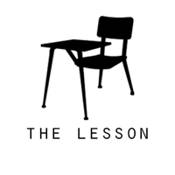
Overview
Synopsis
In this comic drama, a lively young student arrives at the study of a learned professor. She is trying to earn an educational certificate called the “total doctorate,” and she needs to master both mathematics and philology (the study of the history of languages) in order to do so. The Professor’s maid urges him to remain calm as the lesson progresses from addition and subtraction, to multiplication, and later to Spanish pronunciation. All the while, the timid and polite Professor is growing more forceful, domineering and lascivious, as the power of his lectures renders his pupil helpless. The Professor’s lesson culminates in the Pupil’s brutal murder - the fortieth student that the Professor has killed in his study. Luckily for him, his loyal maid knows how to get the forty bodies out without arousing suspicion: he simply needs to wear an armband and practice “good politics.”
The Lesson is a scathing commentary on totalitarianism, indoctrination, and the power of propaganda to suffocate and enslave. Now considered to be one of the foundational texts of the Theatre of the Absurd, this well-loved play has been translated into dozens of languages, and its message is no less relevant today than when it was first performed in the aftermath of the second world war.
Show Information
Context
Plot
Characters
| Name | Part Size | Gender | Vocal Part |
|---|---|---|---|
|
Lead |
Male |
Non-singer |
|
|
Lead |
Female |
Non-singer |
|
|
Supporting |
Female |
Non-singer |
Songs
A song with an asterisk (*) before the title indicates a dance number; a character listed in a song with an asterisk (*) by the character's name indicates that the character exclusively serves as a dancer in this song, which is sung by other characters.
Monologues
Scenes
Key Terms
Absurdism is a 20th-century theatrical style that reflects the belief that life lacks inherent meaning. Playwrights such as Samuel Beckett and Eugène Ionesco used illogical dialogue, repetition, and surreal situations. The genre emphasizes the futility of human struggle and the breakdown of communication.
A short play presented in a single act without intermission, ideal for festivals, student productions, or concise storytelling.
The use of performance or storytelling to promote political or ideological messages, especially in epic theatre.
A dramatic movement featuring illogical dialogue, cyclical plots, and existential themes, reflecting the absurdity of human existence.
A form of authoritarian rule commonly portrayed in dystopian or politically charged theatre works.
Videos
Quizzes
Themes, Symbols & Motifs
Sorry! We do not currently have learning modules for this guide.
Quote Analysis
Sorry! We do not currently have learning modules for this guide.
